Whitetail deer is the most commonly hunted medium game species in North America and each year in fall to early winter, new hunters pick up this important piece of American tradition. Hunting whitetail deer is rooted in our history and is vital for us to continue to foster for future generations. In this article I will go over some critical pieces of equipment, skills, and tips needed for both aspiring hunters and some ideas that may help even seasoned hunters. As the terrain and habits of whitetail deer vary greatly across our beautiful country, so does the equipment and skills needed to be successful. This will be geared mostly to the Southeastern United States, filled with dense canopy forest, rolling hills, heat, humidity, and mud. While seen as less physically demanding as Midwest or western hunting, the South requires certain skills and practices that need to be sharpened to fill your tag and be a good conservationist and hunter.
Southeastern Whitetail Deer Hunting – Your Rifle
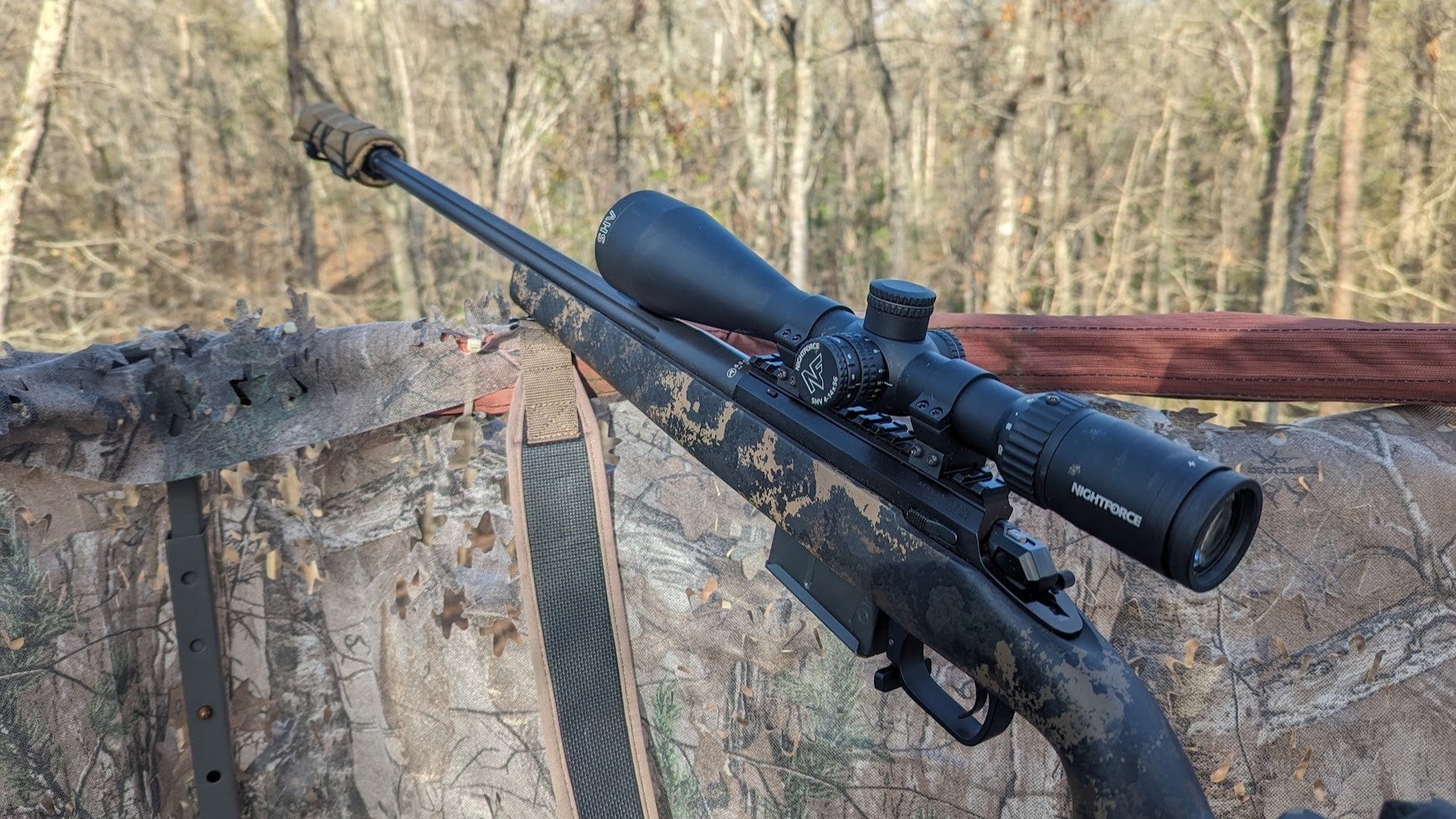
Your rifle is the most important piece of equipment for hunting whitetail, for obvious reasons. When purchasing your first rifle for whitetail deer, you will find conflicting information at every turn. Debates on brand, model, caliber, barrel length, and ammunition are everywhere. Prices can range from $300 for a big box store Savage or Mossberg rifle and optic combo to thousands of dollars for a boutique custom rifle. Rifles are, like most things in life, where you do in fact get what you pay for. That doesn’t mean your first rifle needs to be dream shattering expensive. Companies like Ruger, Savage, Remington, and Tikka offer a variety of quality rifles for under $1,000 that will serve you for years to come.
As far as caliber is concerned, people put too much importance on it. Whitetail deer in the South are rarely over 200 lbs, making something like .300 Winchester Magnum overkill. While I wouldn’t necessarily recommend .223 Remington to a new hunter, plenty of ethical kills have been made with .223, I have even used it for deer. What is more important than caliber is shot placement, which I will go over later.
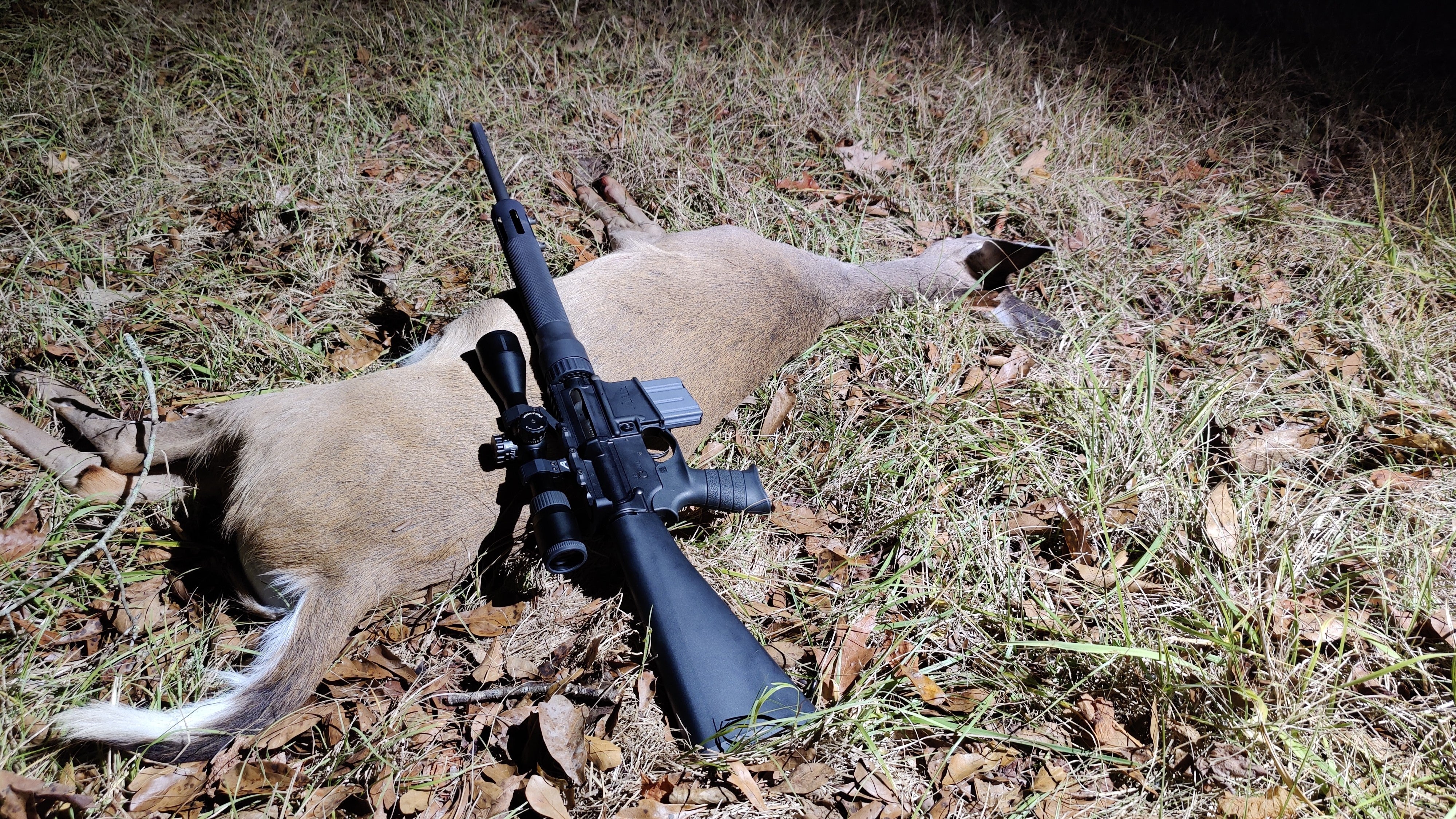
Some commonly used calibers in the South include .308 Winchester, 6.5 Creedmoor, .243 Remington, .30-06 Springfield, .270 Winchester, .30-30 Winchester, and 7mm-08 Remington. This is not an all-inclusive list, but each of these are readily available and are used by hunters all across the southern states.
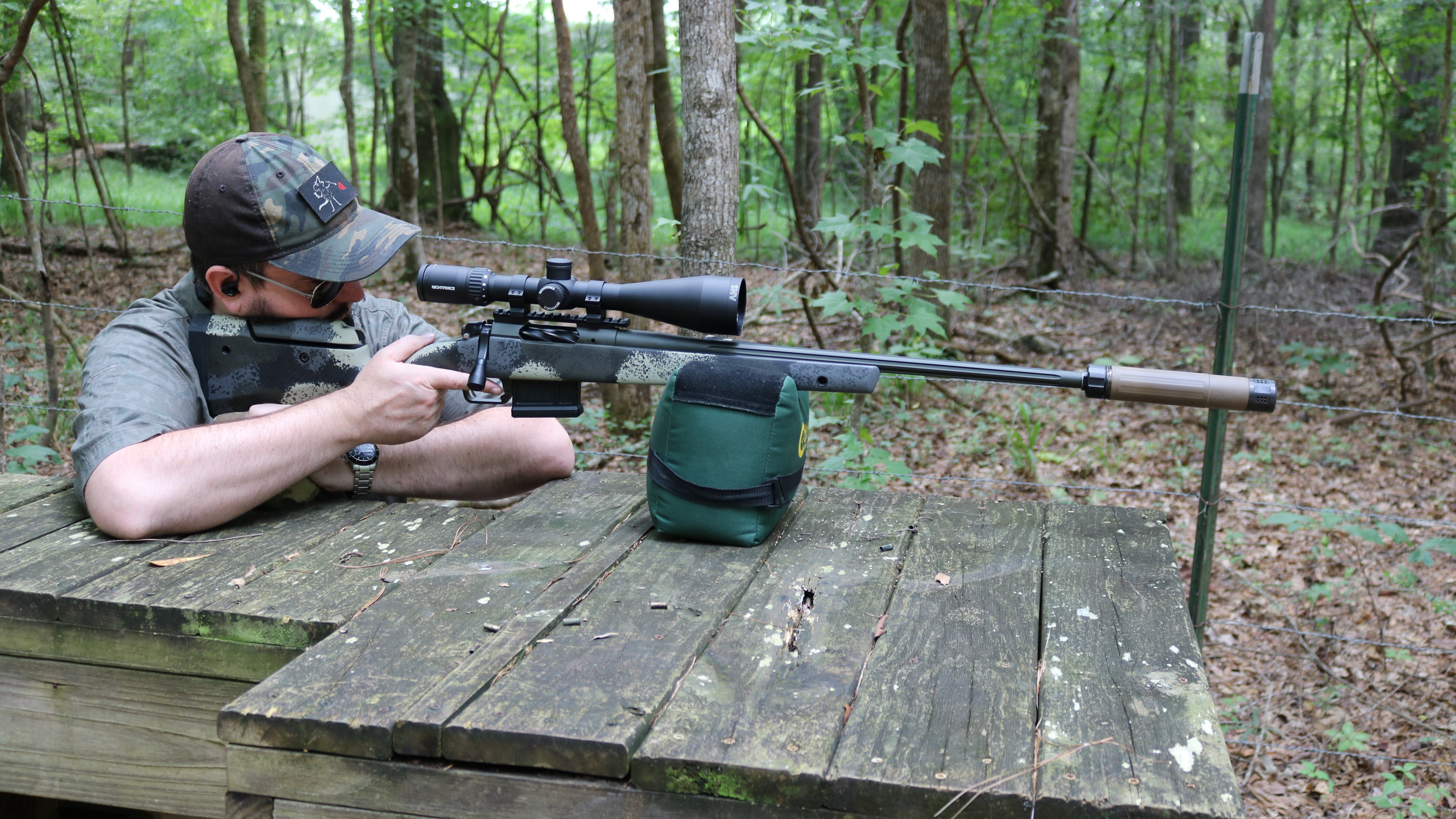
Some excellent rifles to pick up and get a feel for are the following:
Ruger American Gen 2 – These new rifles from Ruger offer some incredible value for the dollar. For hunters in the South, I would recommend their “standard” series, available in a variety of caliber options and can be hand below their $729 MSRP. I personally use one in .308 Winchester. A more affordable option could be the previous generation Ruger American that can be had for even less.
Savage 110 Apex Hunter XP – Savage redesigned their 110 series of rifles and, like the Ruger American, offer plenty of value. Adjustable trigger, reliable action, detachable box magazine, and in just about any common caliber you could want. Bundled with a Vortex Crossfire II optic, it is hard to argue with the $729 MSRP. An affordable alternative from Savage would be a rifle from the AXIS series, not as refined as the 110 series, the AXIS is a bargain and will be a reliable rifle for hunting.
Remington Arms 700 – The Remington 700 is a household name. Most hunters throughout the years have either owned one, or at the very least fired one. The 700 action has been cloned by numerous companies for a reason. It is a rock solid, affordable action that will last a lifetime. Current models range in price, and used versions are everywhere.
Tikka T3x Hunter – Tikka rifles are well-made, accurate, reliable, and just flat out beautiful. The higher than average craftsmanship does cost, so the T3x is more expensive than the other rifles on this list at a street price of $969, and that does not include and optic rail like the others.
Other good options are the Browning X-Bolt or Bergara B-14. My advice, find a good local gun store, pickup and handle these rifles. Figure out which one is most comfortable and fits your budget. Don’t forget to pick up a sling.
Southeastern Whitetail Deer Hunting – Your Optic
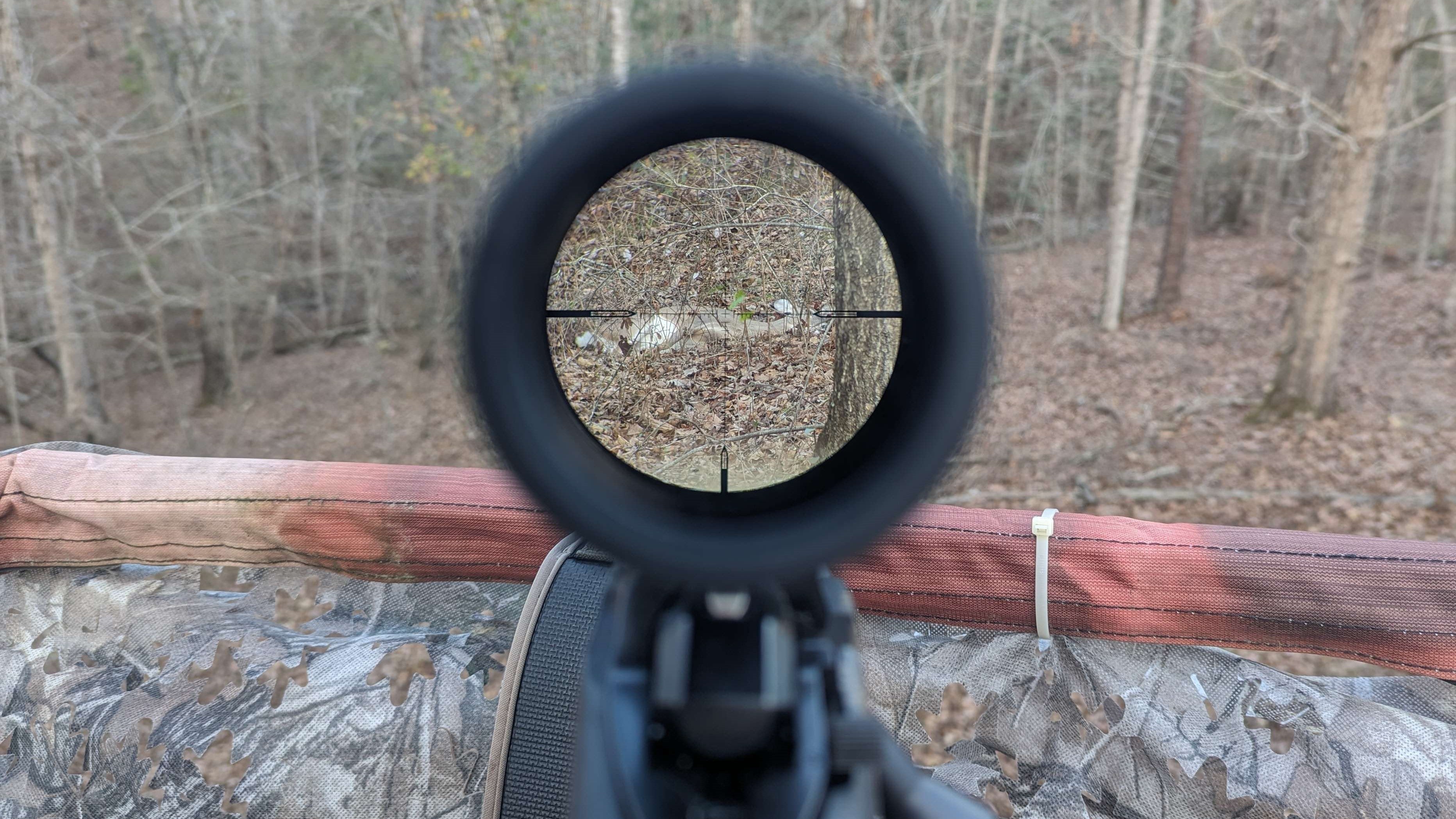
Hunting in the South is common during hours of low light. First light in the morning and late in the afternoon. Having the ability to accurately identify your target in low light is a huge advantage, and the way to achieve that is with good glass.
Brands to look at include Vortex, Burris, Leupold, Zeiss, Athlon, Nightforce, Sig, and Swarovski. A quality optic is, in my opinion, more important than the rifle it is mounted on. This is the piece of equipment that needs to be reliable and dialed in to ensure you are taking a safe and ethical shot.
This is another case where, if possible, you can go into a store to try out these optics yourself as each eye is different. Features I recommend you look for are a large objective lens with proper lens coatings to maximize light transmission, adjustable parallax, illuminated reticle, and a minimum magnification of 2-4x.

Here are some examples to look at and compare.
Leupold VX-5HD 3-44×44 – The VX-5HD family of optics offer some incredibly clear glass with some of the best lens coatings on the market. Covered by a lifetime guarantee, this is an optic you can keep for season after season. MSRP of $1,299.99 may give you some sticker shock if you are new to the rifle scope market, and if that is out of your budget, look into Leupold’s VX-Freedom series.
Vortex Razor HD LHT 3-15×50 – This optic from Vortex is built with hunters in mind.
One scope to rule them all. From dark-timber whitetails, to executing precision long-range shots on an open-country mule deer, and everything in between – there’s the lightweight, second focal plane Razor HD LHT. Stunning, High Definition optical system delivers a crystal-clear sight picture with tack-sharp resolution. Turn every second of legal shooting light into opportunity. Take to the field with confidence, knowing you’ve sacrificed nothing with the Razor HD LHT.
A budget alternative to the Razor HD LHT would be the Diamondback 3.5-10×50. Both of which still carry Vortex’s lifetime warranty.
SIG Sauer Whiskey4 3-12×44 – The Whiskey4 line from SIG Sauer is packed with value, at an attractive MSRP of $329.99 and even bundled with flip up caps, a removable throw lever, and SIG’s infinite guarantee. If you are on a budget this could be a great fit.
Nightforce SHV 4-14×56 – The SHV family from Nightforce is not as durable as the legendary NXS series, but still carries some incredible features for a more obtainable price. This is the exact optic that I have been using the past two seasons, and I have zero plans to hunt without it in the foreseeable future. It is rock solid, tracks perfectly, clear glass that never fogs, and I can count on it to not lose zero. The illuminated reticle model carries an MSRP of $1,259, but deals are out there if you shop around.
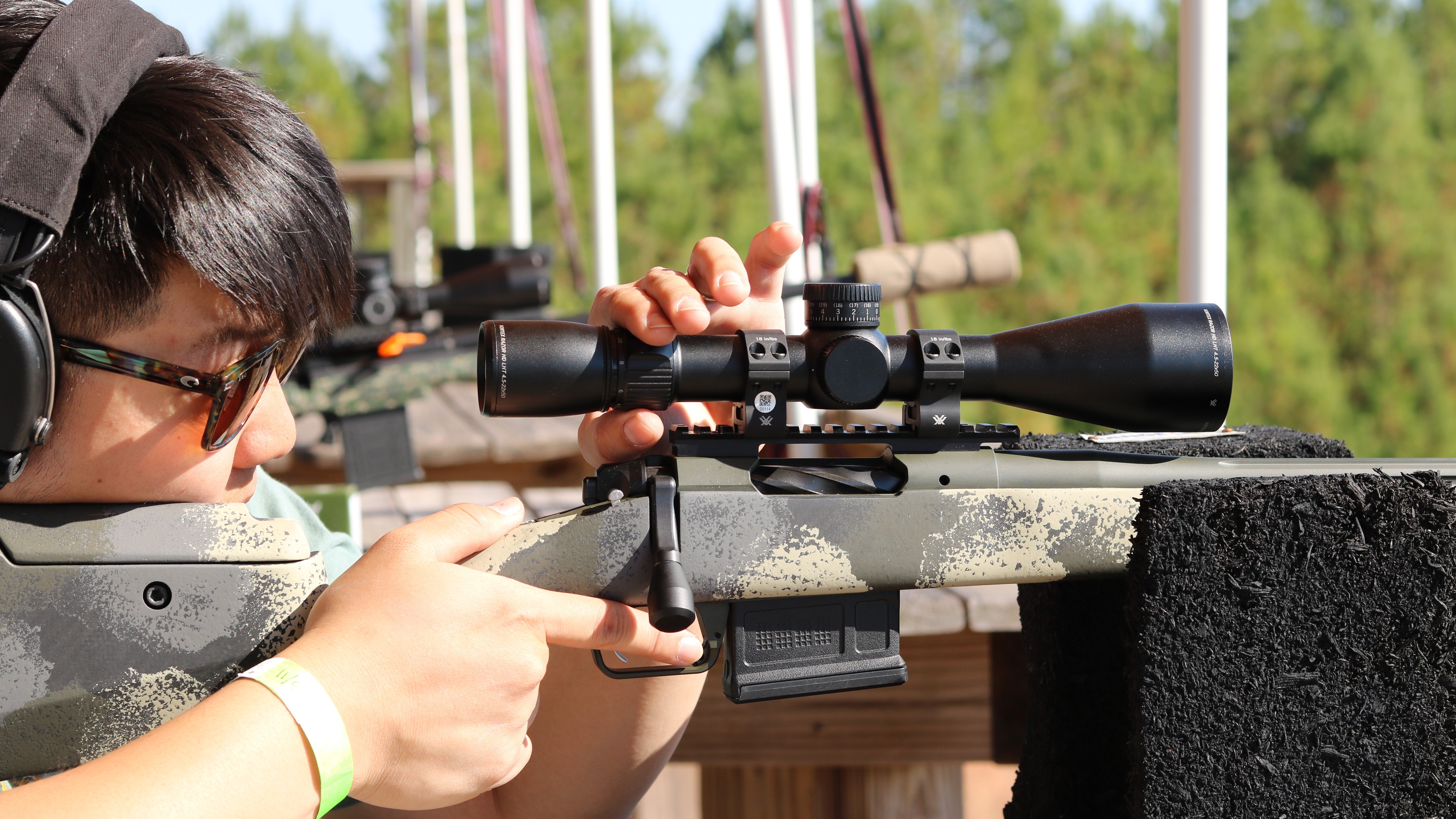
Southeastern Whitetail Deer Hunting – Your Clothes
Your clothes will change through the season, as early season is typically still warm during the day and late season will get close to freezing. It is important to keep in mind that 50°F may not sound cold, but when you are sitting still in a tree stand, ground blind, or even a mostly enclosed shooting house, it gets difficult to stay warm. Layers are your friend.
Early Season you will do just fine with non-insulated boots, light to medium weight socks, your choice of pants, shirt, and a light jacket or hoodie. Don’t forget your blaze orange when you are in the woods, look up the laws in your state on how much orange is required.
Camo choices are all personal preference. Deer are mostly color-blind and, frankly, not that smart. What is most important is breaking up shape, sitting still, not being downwind from your target deer, and being quiet. That said, it’s nice to look the part. Popular choices in the South are Mossy Oak, Realtree, and TrueTimber. All are great choices. Personally, I’m a Realtree guy.
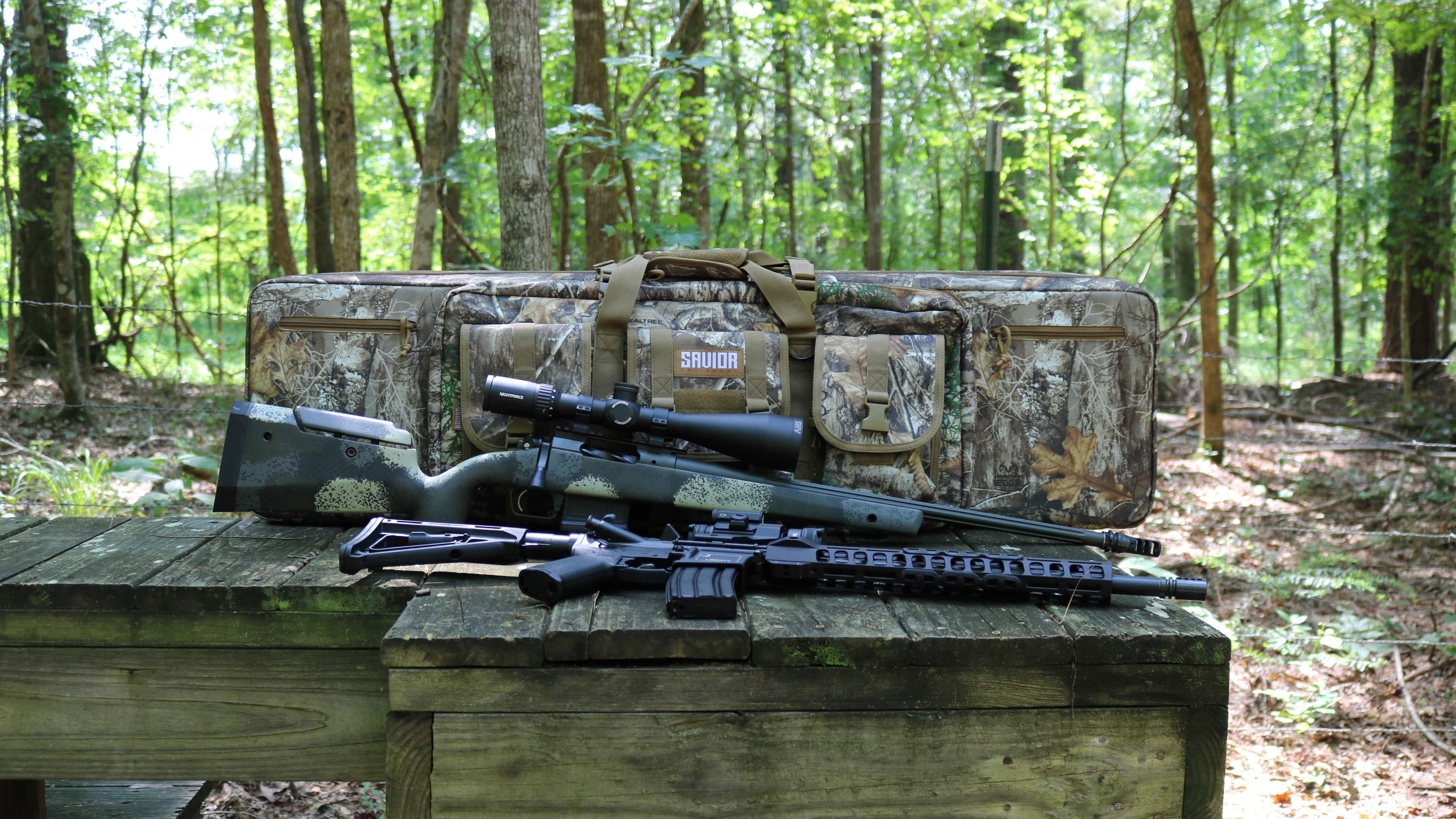
Late Season or early cold fronts are when you need to take your gear seriously. You don’t want to risk injury or having to give up your hunt due to not being prepared. This is when you need to look into thermal base layers. Either synthetic or wool will make a drastic difference in your ability to retain body heat. Paired with a good pair of wool socks, beanie, insulated jacket, insulated boots, gloves, and maybe a hand warmer or two, you could sit comfortably down to freezing for hours while being still and quiet. Going with waterproof boots is a good idea, you will find standing water or mud and sitting for hours in the cold with wet feet isn’t fun. If you are on a budget, shop sales, end of season, military surplus, or thrift stores.
Southeastern Whitetail Deer Hunting – Your Gear
So far you have your rifle, optic, and clothing. Technically, you have everything you need to go hunt, but let’s go over some gear that will make all the difference in your experience.
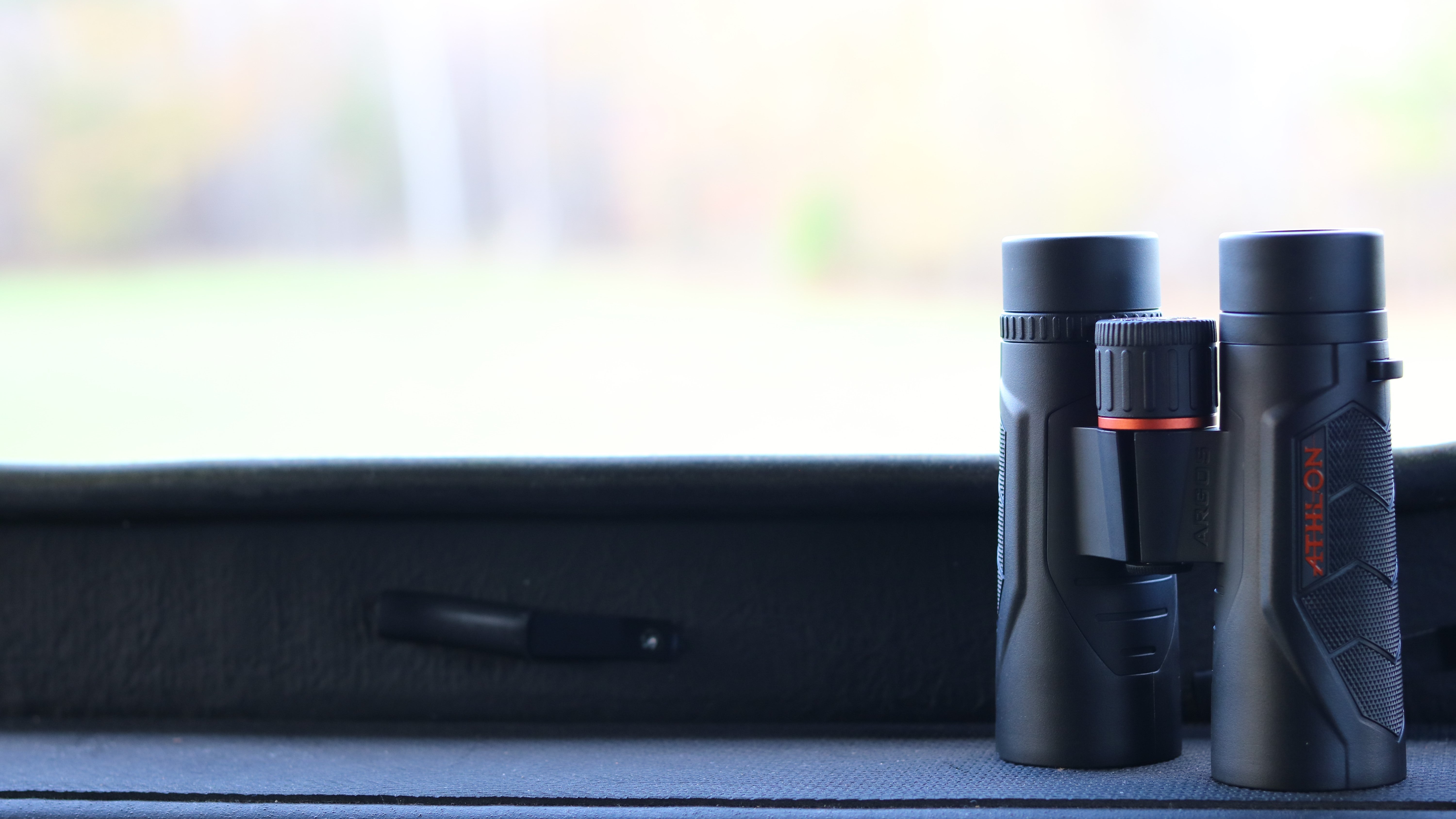
Binoculars are what I would consider to be a vital piece of gear. Being able to sit back and glass over a large area scanning for movement, accurately identify your deer, is worth its weight in gold. As with your rifle optic, large objective lens with good lens coatings are your friend due to the low light hours discussed earlier. The same companies listed in the optics section all make excellent binoculars as well. The first number in a binocular’s designation is the base magnification, so for a pair that says 8×42, it would have a fixed magnification of 8x and is equipped with 42mm objective lens.
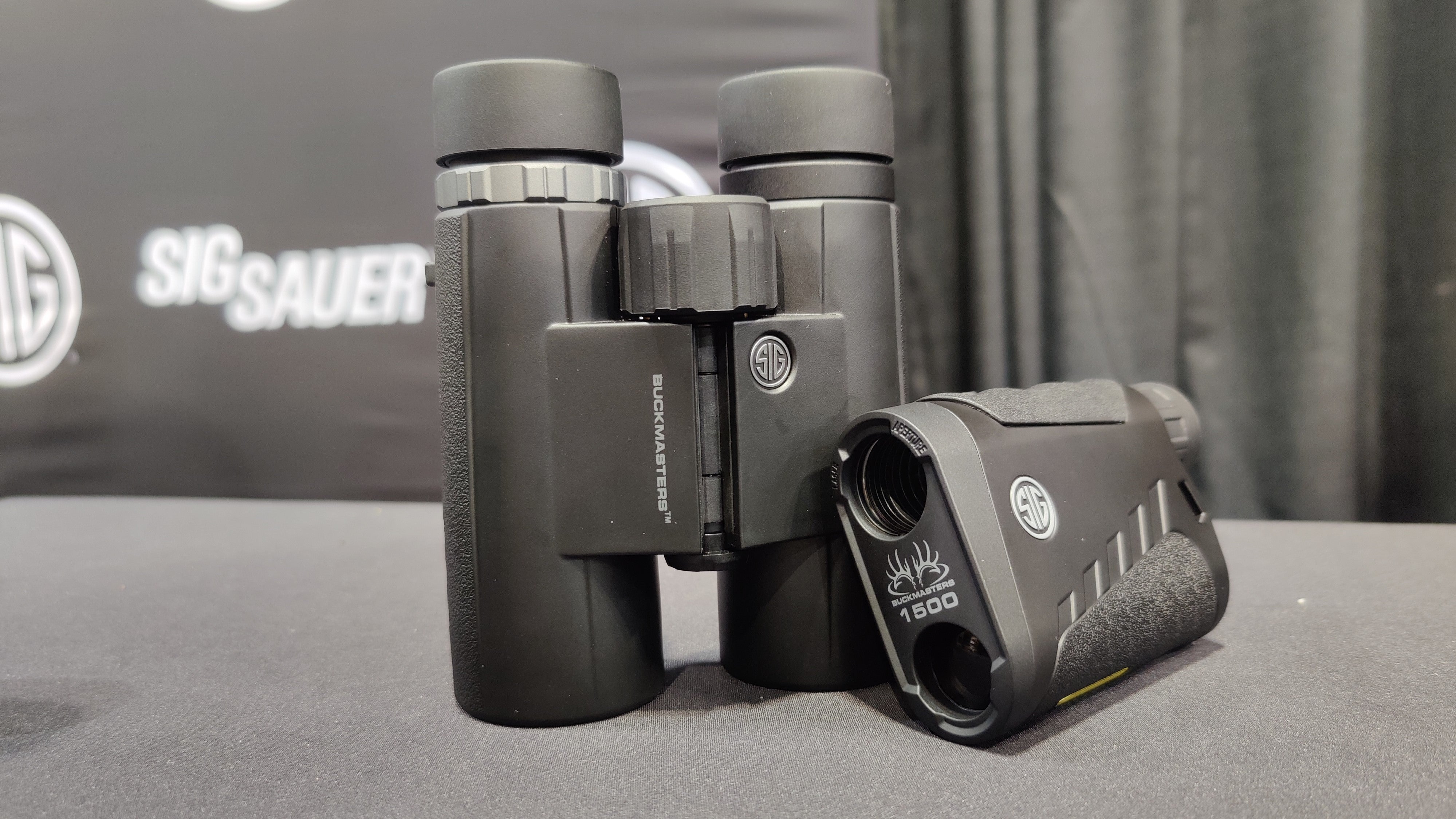
Tick and mosquito repellant. Especially early season, ticks are everywhere and no one wants Lyme disease. Deer have an excellent sense of smell, so you don’t want to go cover yourself in a spray with a strong odor, use something like Sawyer Permethrin Fabric Treatment. Completely odorless after drying and last for 6 weeks or 6 washes.
First aid kit. Accidents unfortunately happen, and typically at the worst times. You could get hurt far away from your hunting friends, or medical attention. Having a decent first aid kit and the knowledge to use it, could make all the difference in the world. Go attend a good first aid class, it could save your life.
A sharp knife. You will need one to field dress your deer. For deer, I carry an Outdoor Edge 3.5” RazorEDC Lite. It has replaceable blades that I keep in my bag so if I get to work dressing a deer and discover my knife is dull, it takes 10 seconds to swap a razor sharp blade into it. A more traditional option would be a quality fixed blade knife that is expertly sharpened on a whetstone. A small hand saw is also a good idea to cut through the sternum to open up the rib cage.
Flashlight. Being able to navigate in the dark is pretty important, and your cell phone light may not cut it. Spending a little extra on one that also has UV for tracking blood, can really save you time. I don’t have any personal experience with this model, but I have used this brand of flashlight before with good success. NEBO Illumatrace Blood Track Flashlight.
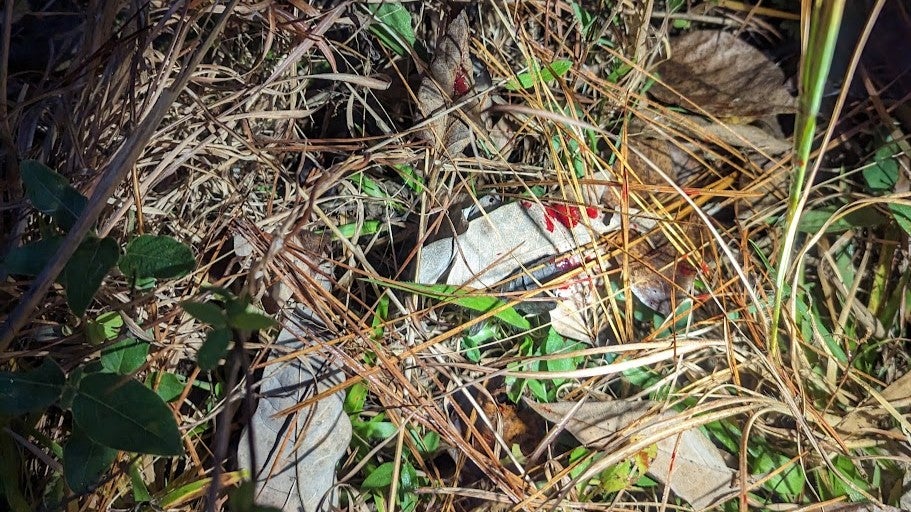
Purchase a hunting license. If you are a new hunter you may be required to complete a hunter’s safety course. My state offers online and in person, and while online is convenient, there is some excellent information to be learned, I recommend you take the in person course.
Ear Protection. The older generation thought just one or two shots from a rifle wouldn’t do much to our hearing, well, they were wrong. Even one shot of supersonic .22lr is above the OSHA recommend noise level, requiring PPE. Simple ear plugs will work, but if it’s in your budget, electronic ear pro is well worth it. Walker Razor or similar will protect your hearing, amplify the surrounding environment, and the added benefit of keeping the wind off your ears.
Southeastern Whitetail Deer Hunting – Your Shooting Skills
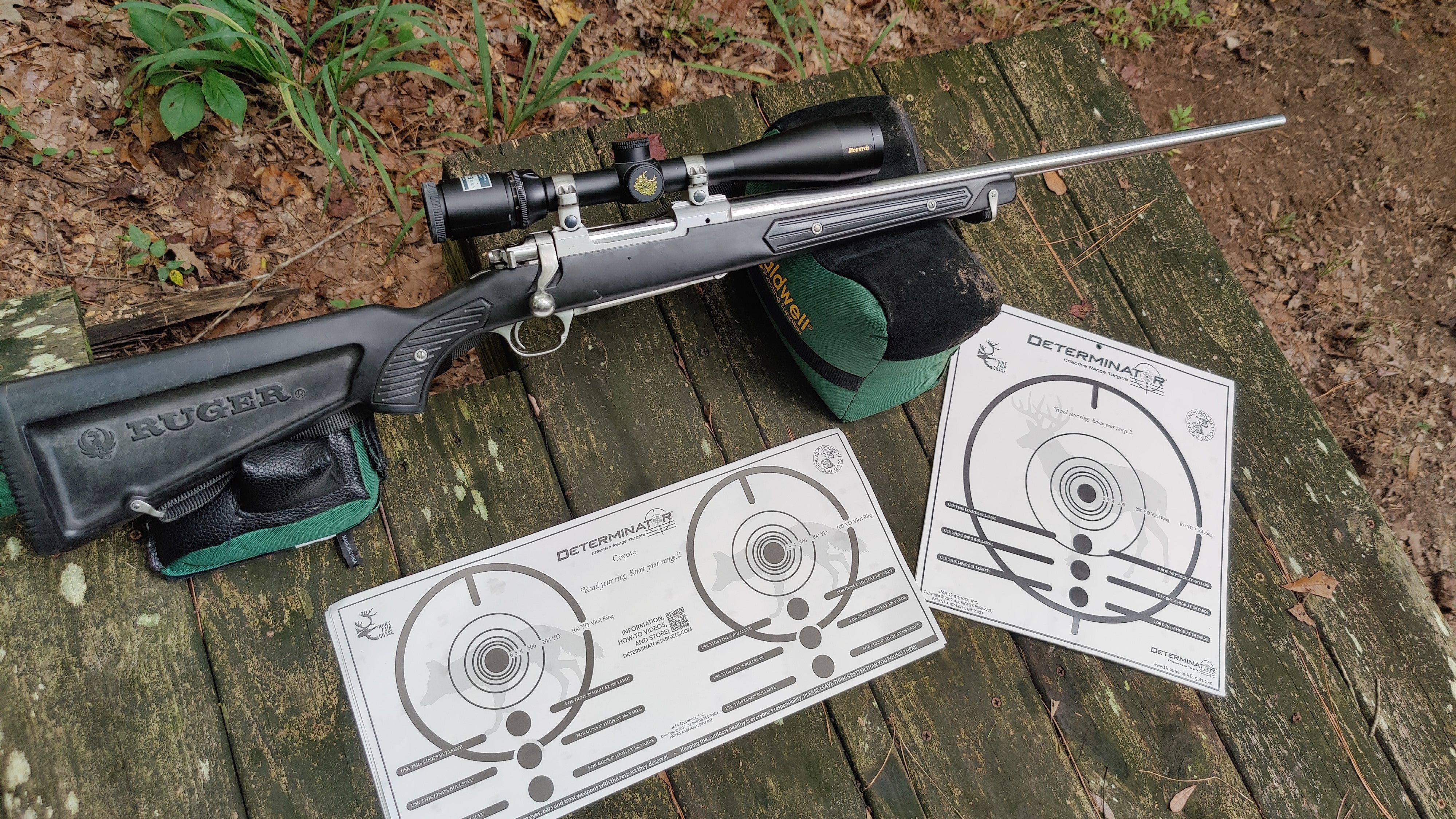
You have a brand-new rifle, optic, and gear. Now you need to practice with them. Getting comfortable behind your rifle and being confident in your ability to shoot exactly where you want to. There are too many cases of new hunters buying a rifle, not even taking the time to zero the optic, wounding a deer, and not being able to recover it.
If you are an experience shooter, but a new hunter, that should come naturally. Shooting is a depreciating skill and requires practice. I’d recommend you spend a couple range session at a minimum to ensure you and your rifle are ready for the season. This is also the time you should be figuring out your ammunition. Each rifle can be picky with grain weight and projectile types, with if it will group well or not. For hunting, you will need expanding ammunition, either ballistic tip or soft point are the two most common options.
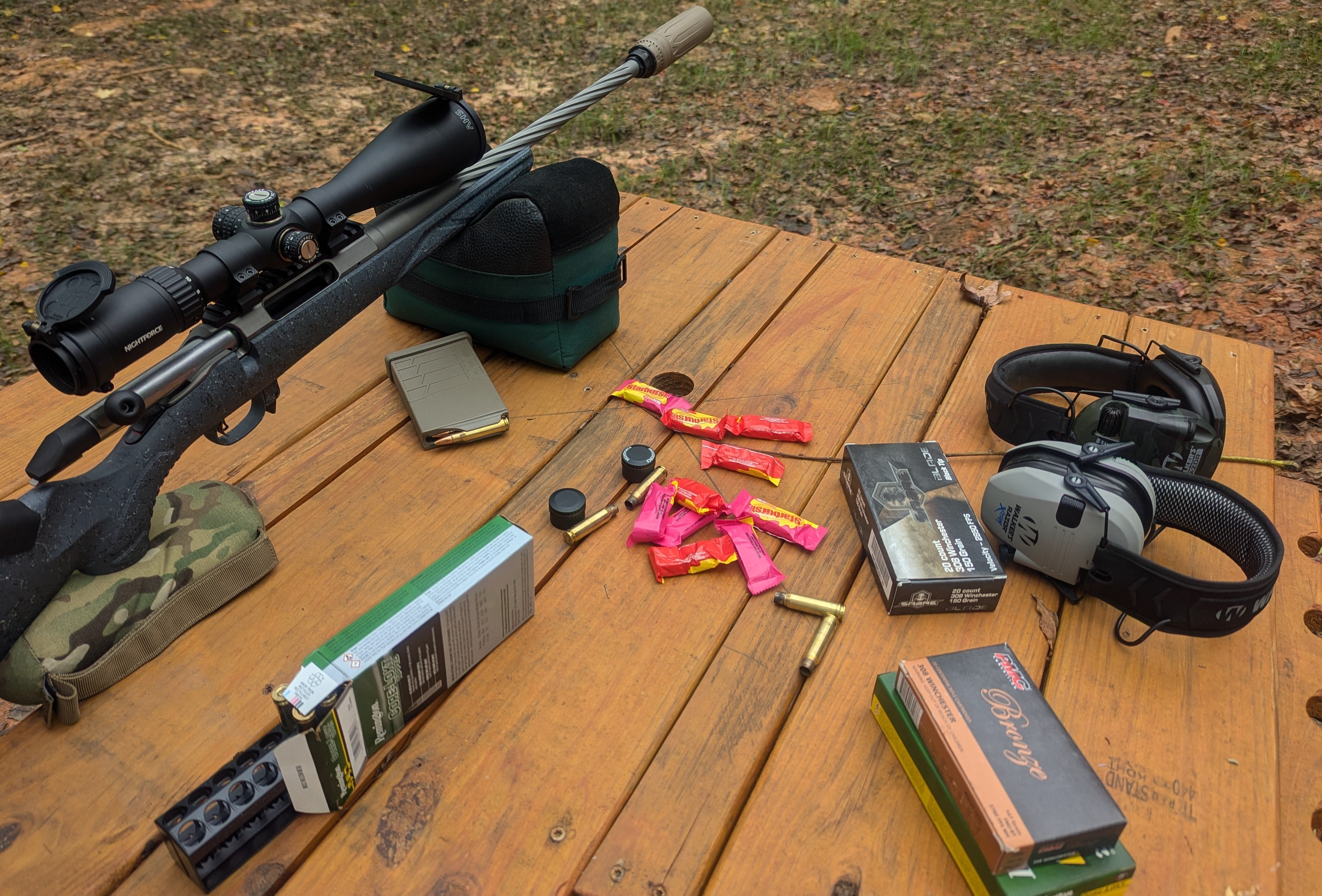
Make sure that whatever ammunition you pick for hunting, that is what you have your rifle zeroed for. For zeroing your rifle, any paper target will do, even a paper plate with a sharpie dot in the center will work. I personally use 1” square zeroing targets, like these. Once your rifle is zeroed, I highly recommend you pick up some deer vital zone targets that will help you as a new hunter to know exactly where to aim. If you are on a tight budget, printable vital zone targets are one google search away, the scale will be small so be sure to study the vital zone to accurately plan your shot.
Southeastern Whitetail Deer Hunting – Your Hunt
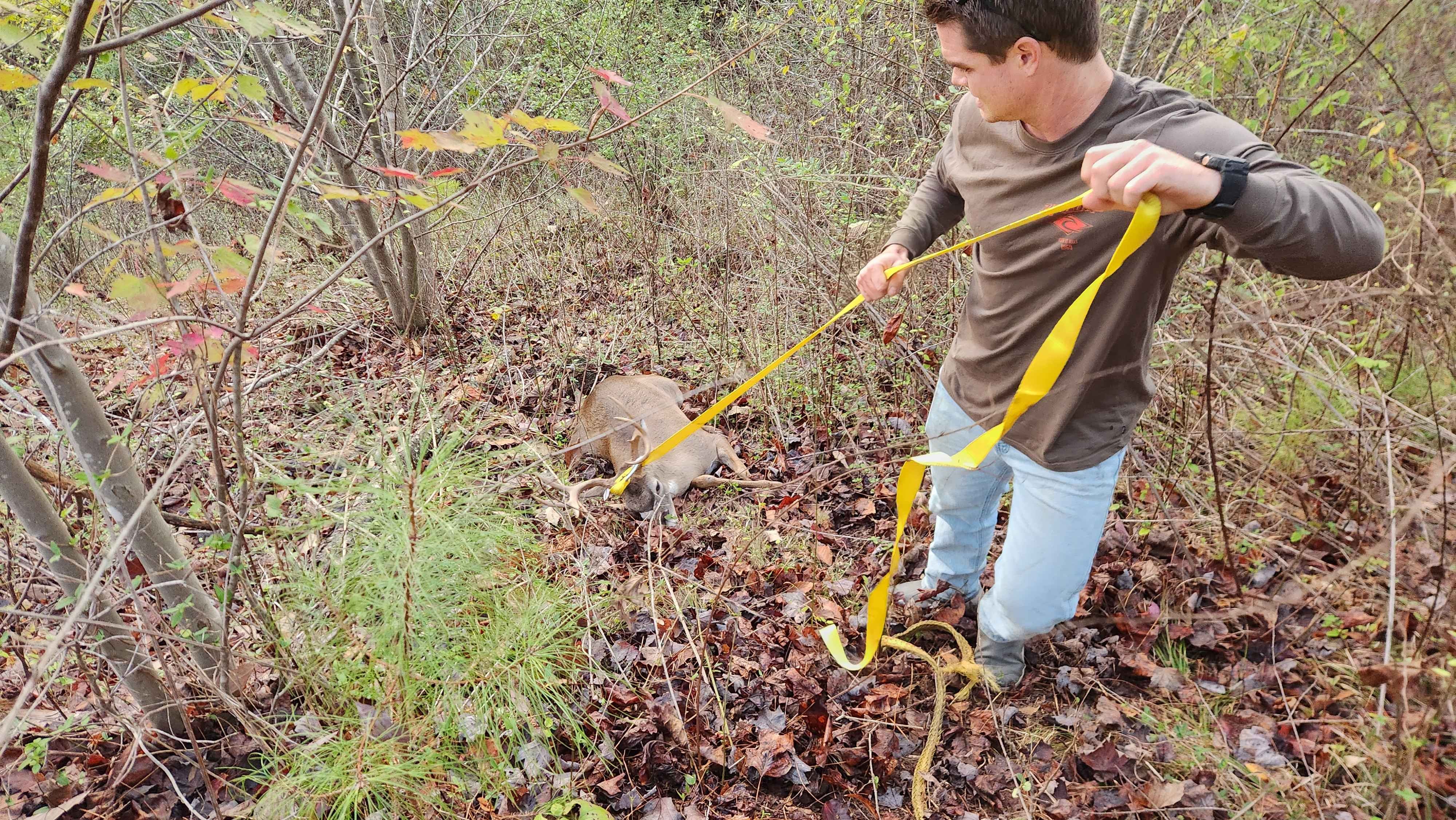
Finding a good place for a tree stand, climber, ground blind, or shooting house prior to your hunt is important. Check for signs of deer, game trails, prints, rubs on trees, droppings, and even sheds from earlier in the year. If you have access to a green field, food plot, or farm land – great! Deer will frequent these areas, especially early in the morning and late afternoon, to feed. If you have permission to set up a trail camera to check on the times, habits, and types of deer entering these areas, you can better plan.
Even though most deer are taken early morning and late afternoon, plenty of whitetails have been taken during midday, so buckling up for an all day sit could be worthwhile. Bring water and some snacks.
Know the direction of the wind. While scent blocking products do help, nothing beats keeping the wind in your favor. Even so, here are some tips to reduce your scent. Hanging your outer layers outside for a few days before your hunt and avoid scented laundry detergent, body wash, soap, and deodorant. Scent blocking kits are affordable at local outdoor stores and include everything you need.
In summary, get quality gear you can afford, layer up for the cold, bring some water, practice, stay safe, and enjoy the great outdoors. Good luck on your future hunts.
The post Southeastern Whitetail Deer Hunting Checklist appeared first on AllOutdoor.com.


